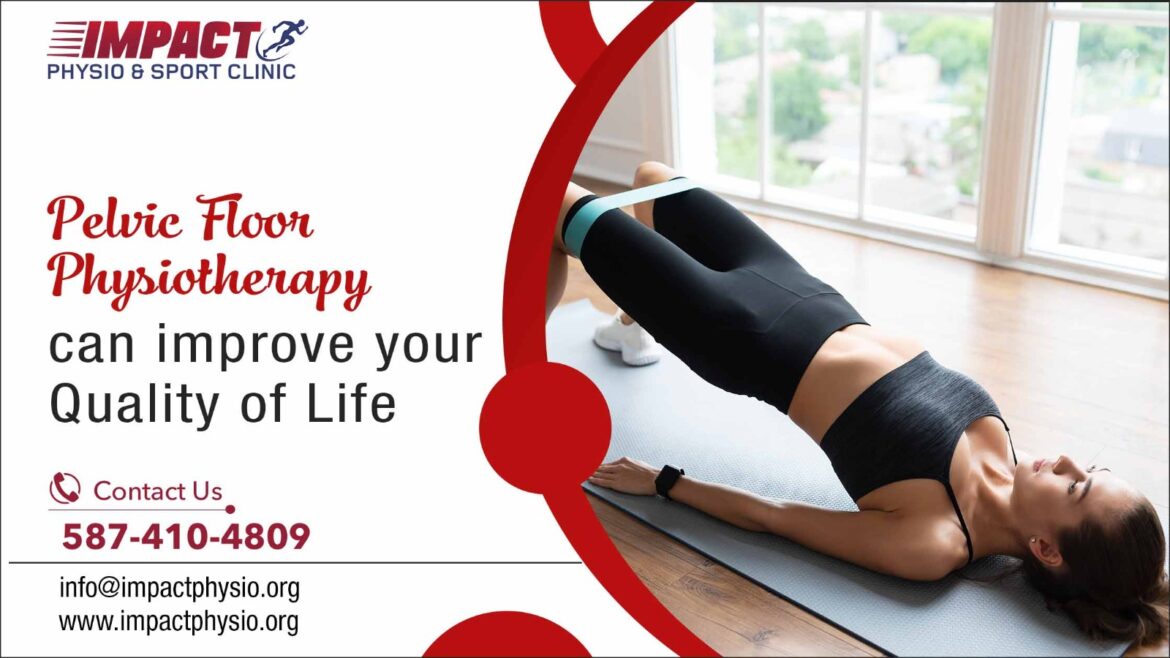Pelvic floor dysfunctions, while often overlooked, can significantly impact one’s quality of life. For those affected, embracing a solution such as Pelvic Floor Physiotherapy Beaumont can present a pathway toward improved wellness. Located in Beaumont, Impact Physiotherapy is dedicated to offering specialized treatments, paving the way to enhanced health and a more fulfilling life for both men and women.
Decoding the Pelvic Floor: Understanding its Functionality
To grasp the transformative potential of pelvic floor physiotherapy, it’s crucial first to understand the pivotal role of the pelvic floor. This complex network of muscles, ligaments, and connective tissues serves an array of critical functions, including supporting pelvic organs, ensuring urinary and fecal continence, and facilitating sexual function. When compromised due to factors such as childbirth, surgery, aging, or lifestyle, the pelvic floor can give rise to various health concerns.
The Manifestations of Pelvic Floor Dysfunctions
Pelvic floor dysfunctions can exhibit a diverse range of symptoms, varying significantly from one individual to another. Some common manifestations include urinary or fecal incontinence, chronic pelvic pain, sexual dysfunction, and organ prolapse. The impact of these conditions can extend beyond physical health, often leading to emotional distress and diminished quality of life.
Pelvic Floor Physiotherapy: A Gateway to Improved Quality of Life
At Impact Physiotherapy, we offer a broad spectrum of treatment modalities catered to your specific needs. The core of our treatment approach includes the following:
1. Kegel and Reverse Kegel Exercises
This involves contracting and relaxing the muscles in the pelvic floor. Regular practice of Kegel exercises strengthens the pelvic floor, improving urinary and fecal continence. Conversely, Reverse Kegel exercises focus on relaxing these muscles, which is beneficial for individuals experiencing pelvic floor tension and associated discomfort.
2. Hypopressive Exercise
A technique involving diaphragmatic breathing and posture management, hypopressive exercises help to reduce pressure on the pelvic organs, making it a suitable option for treating urinary incontinence and pelvic organ prolapse.
3. Manual Therapy
In some cases, direct manual therapy on the pelvic floor muscles can help alleviate tension, manage conditions such as chronic pain, improve muscle flexibility, and promote healing.
4. Electrotherapy
Electrotherapy involves the use of electrical signals to stimulate the pelvic floor muscles, enhancing their strength and endurance. This is particularly useful for those suffering from severe weakness in these muscles.
5. Biofeedback
Biofeedback provides real-time data about muscle activity, enabling patients to understand their muscle contractions and relaxations better, making the exercises more effective.
Pelvic Health Physiotherapy: A Valuable Resource for Prenatal and Postnatal Care
In addition to being a corrective measure for pelvic floor dysfunctions, pelvic health physiotherapy plays a significant role in prenatal and postnatal care. It can prepare the body for the strains of pregnancy and childbirth, as well as support postnatal recovery. With targeted exercises and therapies, women can manage pregnancy-related discomforts, enhance pelvic stability, and promote faster recovery post-childbirth.
The Lifelong Impact: Enhancing Quality of Life Through Pelvic Floor Physiotherapy
Pelvic floor physiotherapy, a specialty at Impact Physiotherapy, has proven to be transformative in managing a range of health concerns, enhancing the overall quality of life. Its potential benefits are far-reaching. For instance, it improves continence in individuals struggling with urinary and fecal incontinence, boosting their confidence in social and professional interactions by alleviating concerns over unexpected leakage.
For those living with chronic pelvic pain, targeted exercises and manual therapy can significantly lessen discomfort, leading to greater physical comfort and mental well-being.
The therapy is equally effective in addressing sexual dysfunctions, where improved pelvic muscle strength and flexibility can enhance sexual satisfaction, thereby positively affecting personal self-esteem and intimate relationships.
Moreover, women looking forward to motherhood or those in the postnatal phase can rely on pelvic floor physiotherapy for women to prepare their bodies for the demands of childbirth, managing pregnancy-related discomfort, and enabling a faster postnatal recovery.
The therapy also plays a crucial role in preventing and managing organ prolapse, a common concern for many women. Men, too, can find value in this therapy, especially after prostate surgery, as it helps improve continence and sexual function, enhancing post-surgical recovery and quality of life.
In essence, pelvic floor physiotherapy, as provided by Impact Physiotherapy, offers a versatile, effective therapeutic pathway to better health. It’s an invaluable resource for managing diverse health concerns and paves the way for a healthier, happier lifestyle.
Embracing Pelvic Health Physiotherapy for Enhanced Quality of Life
In the realm of healthcare, understanding and addressing pelvic health is crucial. At Impact Physio and Sports Clinic, we are committed to offering comprehensive and personalized pelvic health physiotherapy services to support our patients on their journey to improved health and a better quality of life. With a team of dedicated professionals and a patient-centred approach, we provide the tools and guidance needed to navigate the path to recovery, empowering our patients to reclaim their health and wellness.


